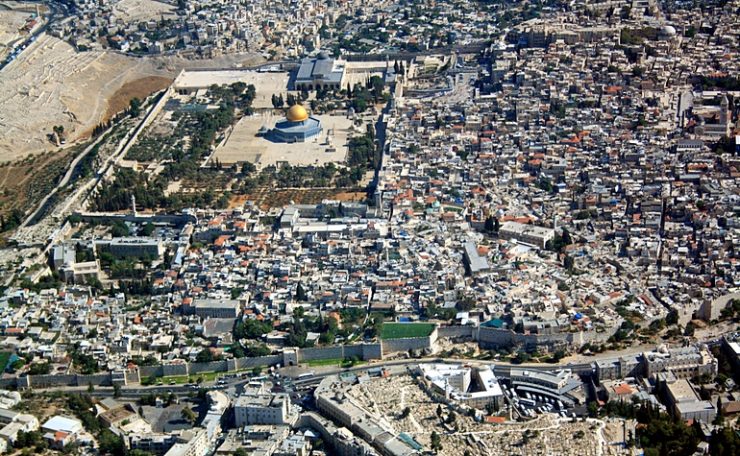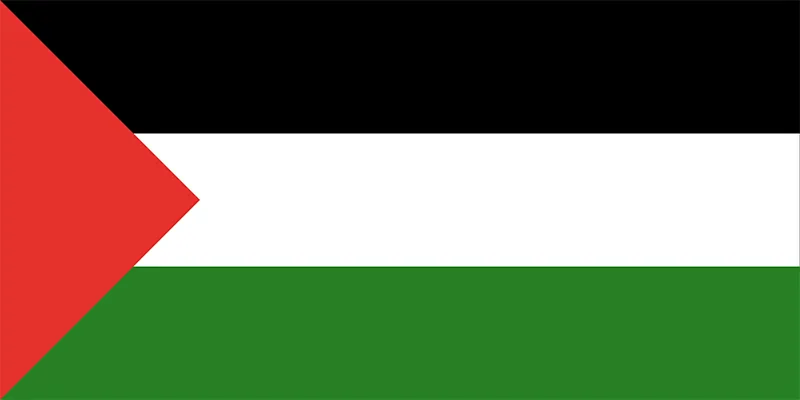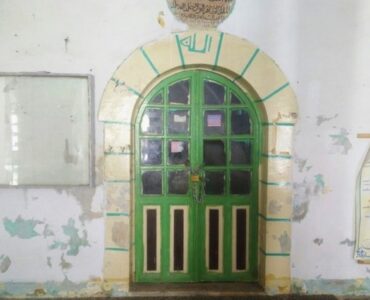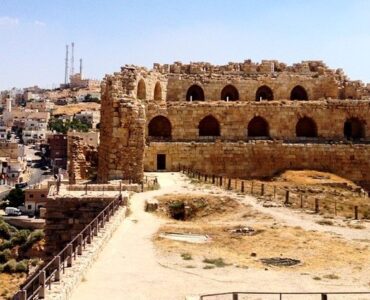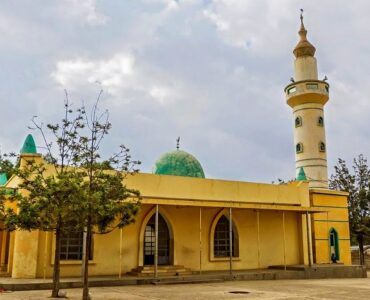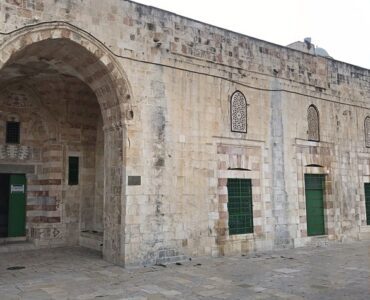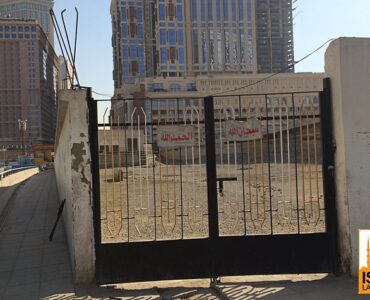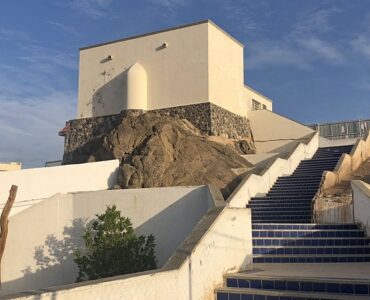Jerusalem is one of the oldest cities in the world and is considered holy by all three Abrahamic faiths. It is also known as ‘al-Quds’, literally meaning ‘The Holy One’, and is the location of Masjid al-Aqsa – the third holiest place in Islam. Jerusalem is also where many Prophets and companions of the Prophet (ﷺ) are buried.
There are many ahadith, sayings of the Prophet (ﷺ), concerning the importance of Jerusalem. Here are a selection:
- Zaid Ibn Thabit (رضي الله عنه) reports that the Prophet (ﷺ) said, “How blessed is Al-Sham!” .The Companions (رضي الله عنهم) asked, “Why is that?”. The Messenger (ﷺ) replied, “I see the Angels of Allah spreading their wings over Al-Sham”. Ibn Abbas (رضي الله عنه) added, “And the Prophets lived therein. There is not a single inch in Al-Quds (Jerusalem) where a Prophet has not prayed or an Angel not stood”. [Tirmidhi, Ahmad]
- Abu Hurayrah (رضي الله عنه) narrates that the Prophet (ﷺ) said, “On the night journey Allah’s Apostle (ﷺ) was taken on a night journey (Al-Isra and Al-Miraj), two cups, one containing wine and the other containing milk were presented to him at Al-Quds (Jerusalem). He looked at them and took the cup of milk. Angel Gabriel said, “Praise be to Allah, who guided you to Al-Fitrah (the right path); if you had taken (the cup of) wine, your Ummah would have gone astray”.” [Bukhari]
- Maymunah Bint Sa’d (رضي الله عنها) reports that she asked the Prophet (ﷺ), “O Messenger of Allah, give us a pronouncement about Al-Quds (Jerusalem)”. The Prophet (ﷺ) replied, “It is the land where they will be raised (Al-Hashr) and gathered (Al-Mahshar)”. [Ahmad, Tabarani]
- Umamah Al-Bahili (رضي الله عنه) reports that the Prophet (ﷺ) said, “A group of my Ummah will remain on truth, they will vanquish their enemy and those who disagree with them will not be able to harm them until Allah commands”. “Where are these people?”, the companions (رضي الله عنهم) asked. The Prophet (ﷺ) said, “In and around Al-Quds (Jerusalem)”. [Ahmad]
- Abdullah bin Umar (رضي الله عنه) reports that the Prophet (ﷺ) said, “There will be migration upon migration. The best of the inhabitants of earth will reside where Prophet Ebrahim (Abraham) migrated (Jerusalem)”. [Abu Dawud]
- Abu Umama (رضي الله عنه) reports that the Prophet (ﷺ) said, “Prophethood descended upon me in three places: Makkah, Madinah and Al-Sham. Once it is brought out from any of them, it shall never return to it” (Abu Dawud). In another narration it states, “The Quran was revealed in three places – Makkah, Madinah and Al-Sham” (Tabarani). Ibn Kathir, the great scholar of Islam, said, “Al-Sham here means Bayt Al-Maqdis (Jerusalem)”. [Abu Dawud, Tabarani]
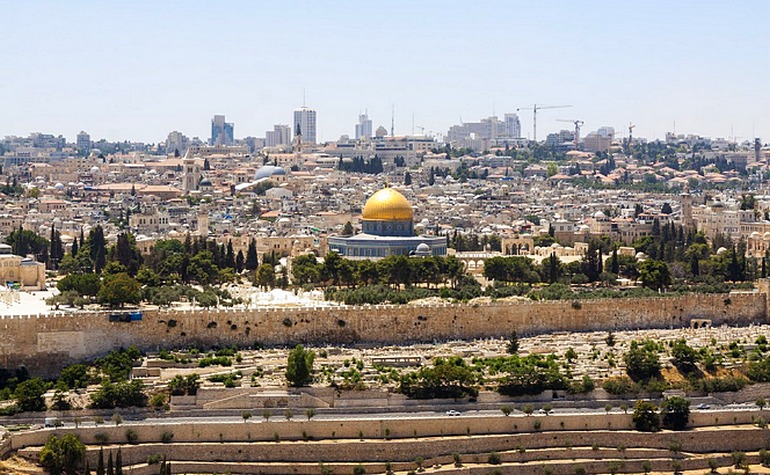

Brief historical timeline of Jerusalem:
- Jerusalem has a long history. It has been destroyed at least twice, besieged 23 times, attacked 52 times, and captured and recaptured 44 times.
- It was captured by the Muslims in 637 CE during the reign of Caliph Umar (رضي الله عنه). This occurred within five years of the death of the Prophet (ﷺ).
- The city was taken by the Christian Crusaders in 1099 and the Muslim and Jewish inhabitants were massacred. In 1187, the city was recaptured by Salahuddin Ayyubi. He not only let the surviving Crusaders free to leave the city, but also gave many of them provisions for their journey home.
- Between 1229 and 1244, the city was peacefully given to Christian control as a result of a treaty agreed between the crusading Roman Emperor Frederick II and al-Kamil, the Ayyubid sultan of Egypt.
- In 1244, Jerusalem was sacked by the Tatars, who annihilated the Christian population. They were driven out by the Ayyubids (descendents of Salahuddin Ayyubi) in 1247. Between 1260 and 1517, the city was ruled by the Mamluks. They were former slaves brought up as Muslim soldiers and played a pivotal role in checking the Mongol advance.
- From 1517 right up to 1917, the city came under the control of the Ottomans. They brought great prosperity to the city, particularly Sulayman the Magnificent, under whose rule were built the walls around the Old City.
- Jerusalem came under the control of the British between 1917 to 1948. Following civil war, the city was divided into two. The eastern half (including the Old City) became part of Jordan, while the western half became part of the newly established state of Israel.
- Following the 1967 ‘Six Day’, the whole of Jerusalem came under the control of the Israelis. They claim sovereignty of the site of Masjid al-Aqsa but custodianship is held by the Islamic waqf trust. However, Israeli forces are permitted to patrol and conduct searches within al-Aqsa.
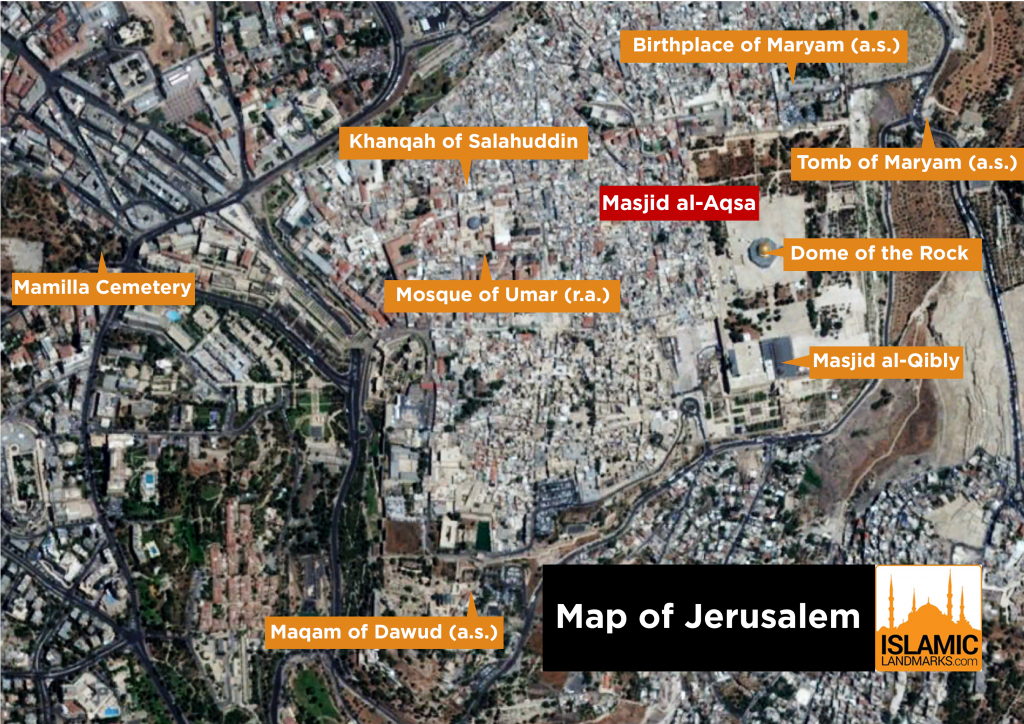

References: A history of Jerusalem – Karen Armstrong, Al-Quds – Mohammed Abdul Hameed Al-Khateeb, Forty Ahadith concerning Masjid al-Aqsa – Ismail Adam Patel, Wikipedia.

